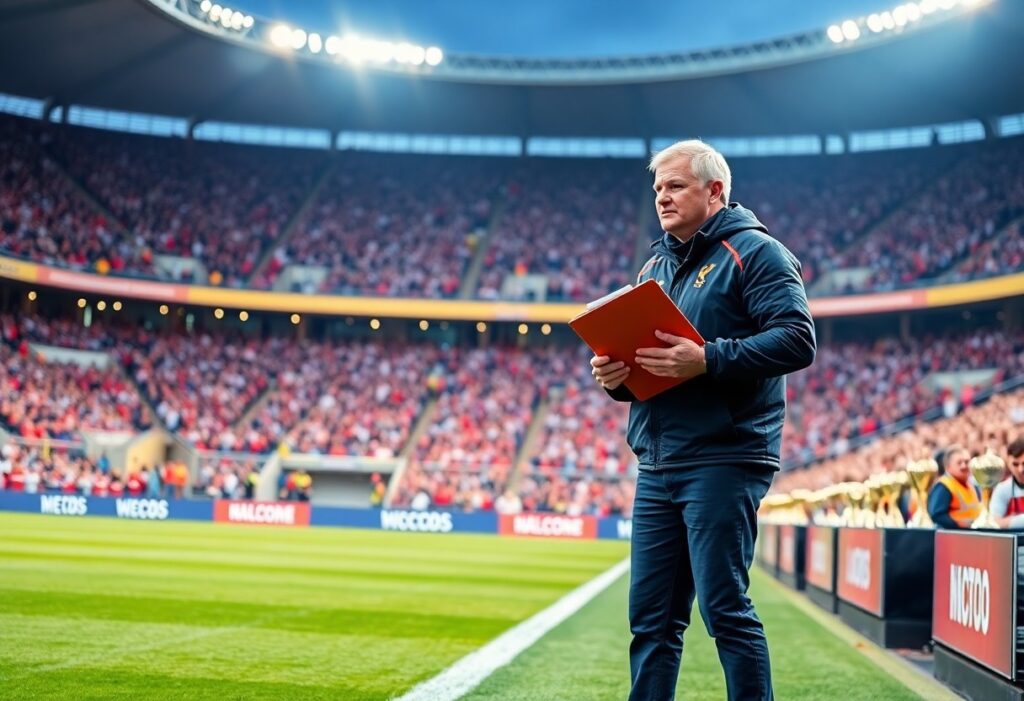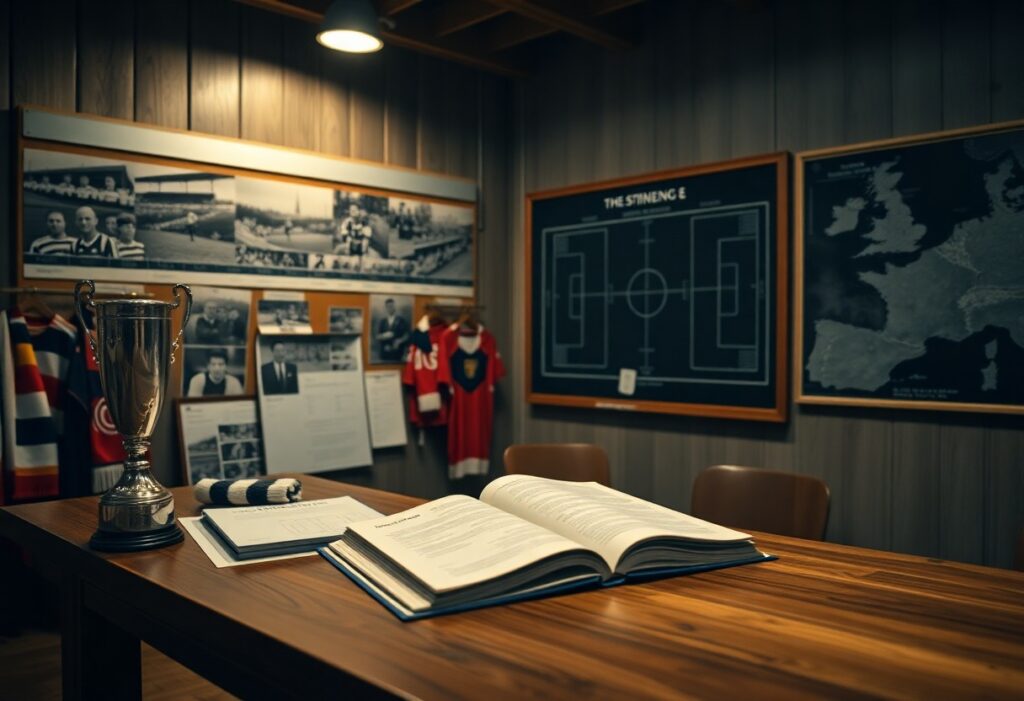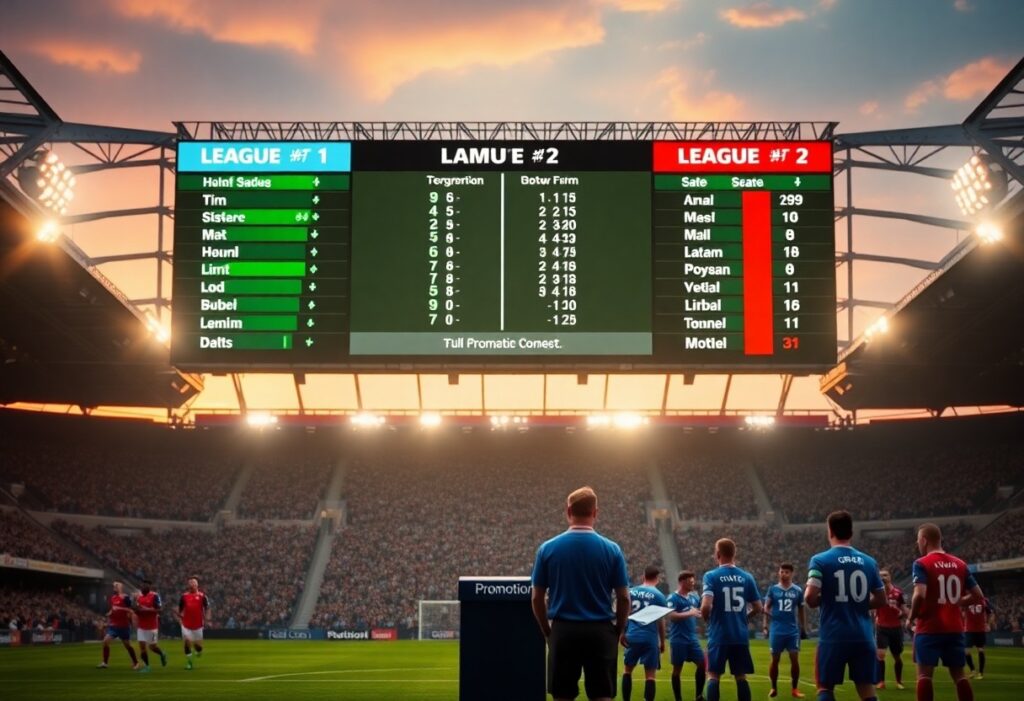
With a strategic vision and adept leadership, managers hold the key to molding football clubs into Champions League dynasties. Their ability to harness and develop talent, implement tactical innovations, and foster a winning culture cannot be understated. Managers navigate the pressures of high-stakes competitions, making decisive choices that can lead to both glory and failure. By cultivating team cohesion and consistently pushing boundaries, they lay the foundation for long-term success in Europe’s premier club tournament.
The Evolution of Champions League Dynasties
The landscape of the UEFA Champions League has transformed significantly since its inception. Initially, only a handful of clubs dominated, with Real Madrid’s early success setting the tone. Over the decades, shifting power dynamics emerged, as teams like AC Milan, Liverpool, and Barcelona rose to prominence. The competition expanded, allowing a more diverse array of clubs to challenge the traditional giants. This evolution highlighted the changing nature of football tactics, player recruitment, and the global reach of the tournament.
Key Factors in Team Success
Several elements contribute to establishing a Champions League dynasty. Successful teams exhibit strong leadership, cohesive team chemistry, strategic tactics, and a relentless drive for perfection. Additionally, financial investment plays a key role in acquiring top-tier talent. An example is Manchester City’s rise, fueled by significant funding and a clear vision. This combination of factors is important for consistent triumphs on the European stage.
- leadership
- team chemistry
- strategic tactics
- financial investment
Beyond financial backing, the culture within the club and the ability to adapt to evolving football trends are critical. The integration of youth academies and scouting networks also significantly enhances squad depth. For instance, Ajax’s commitment to youth has produced a conveyor belt of talent, showcasing the importance of sustainable practices. This approach ensures longevity and competitiveness in the ruthless arena of elite football.
- club culture
- adaptability
- youth academies
- scouting networks
The Manager’s Influence on Team Performance
A manager’s strategic approach dictates not just the tactics employed, but also the overall morale and cohesion of a team. Their ability to adapt to different opponents and situations often determines a team’s success in high-stakes matches. For instance, successful managers like Pep Guardiola and Jürgen Klopp have tailored their styles to maximize their squads’ strengths, effectively turning ordinary teams into formidable contenders for the Champions League title.
Tactical Innovations
Innovative tactics can shift the balance in Champions League matches. Managers who embrace new formations and strategies, such as Thomas Tuchel’s utilization of the fluid 3-4-3 formation at Chelsea, often catch opponents off guard. Implementing unique pressing systems or positional play not only enhances performance but also often leads to unexpected wins against stronger teams.
Player Development and Management
Successful managers prioritize player development while fostering an environment that encourages growth and learning. This approach transforms raw talent into match-winning assets. Managers like Klopp have leveraged individual training regimens, psychological support, and mentorship to elevate young players, evidenced by the way he nurtured Trent Alexander-Arnold into a world-class right-back.
Player development extends beyond technical ability; a manager’s insight into a player’s mindset is equally important. By creating tailored training programs and offering constructive feedback, managers can enhance individual strengths and correct weaknesses. The emergence of stars like Mason Mount under Frank Lampard illustrates the tangible benefits of dedicated mentorship. Furthermore, employing data analytics helps identify talents ripe for development, demonstrating the blend of intuition and modern methodology that characterizes successful management in building Champions League dynasties.
Building a Winning Culture
Creating a winning culture within a team starts with a clear vision and relentless consistency in message. Managers must instill a mindset that prioritizes excellence, accountability, and continuous improvement. This culture becomes a driving force that propels the team towards shared goals, enabling them to thrive under pressure and elevate their game, especially in the high-stakes environment of the Champions League.
Establishing Team Values
Team values form the foundation of a club’s identity, guiding players’ behavior on and off the pitch. Managers articulate these values clearly, ensuring they resonate with everyone involved. For instance, clubs like FC Bayern Munich emphasize integrity, teamwork, and respect, fostering a strong bond among players and staff that translates into performance on the field.
Fostering a Competitive Environment
A competitive environment stimulates growth and drives players to reach their highest potential. Managers can cultivate this atmosphere by balancing competition among players through regular performance evaluations and targeted incentives. This was evidenced by Manchester City’s approach, where Pep Guardiola implemented a system of internal rivalries to push players, resulting in a squad filled with world-class talent consistently vying for starting positions.
Encouraging healthy competition not only raises individual performance but also strengthens team cohesion. In practice sessions, managers often employ match simulations that mimic the intensity of a Champions League fixture, providing players with a taste of high-pressure situations. As seen in clubs like Liverpool, such environments promote resilience, where players understand that only the best will earn their place in pivotal matches, creating a culture where excellence is both expected and rewarded.
Strategic Recruitment and Squad Depth
Managers play a pivotal role in shaping their squads through strategic recruitment and enhancing squad depth. The ability to identify targets who align with a club’s philosophy and can elevate performance is vital. A well-rounded squad not only sustains high levels of competition throughout the season but also ensures resilience during injuries and fixtures congestion.
Identifying Talent
Scouting networks and analytics have transformed the identification of talent in football. Successful managers utilize advanced data metrics alongside traditional scouting methods to find players with high potential. For instance, teams like Ajax and Barcelona have thrived by integrating youth systems with astute scouting, yielding world-class talent.
Effective Transfers and Contracts
Navigating the transfer market demands adept negotiation skills and tactical foresight. Managers must ensure that new signings not only fit the team’s style but also represent a good investment. Additionally, constructing contracts that include performance incentives can motivate players and safeguard club finances.
Effective transfers require a comprehensive understanding of both market dynamics and player motivations. Clubs such as Manchester City have leveraged their financial power to secure top-tier talent, often embedding performance clauses that ensure value for money. This approach, coupled with a focus on long-term contracts, allows managers to build champions with a squad capable of sustaining success over time. By analyzing market trends and player performances, clubs can avoid overspending on underperforming assets and instead invest in emerging stars that align with their vision.
Adaptability in High-Pressure Situations
Managers must exhibit exceptional adaptability in the high-stakes environment of the Champions League. Decision-making under pressure can dictate not only the outcome of a match but also the trajectory of a club’s season. Agility in tactics, player management, and emotional resilience often separate successful teams from their rivals. The ability to pivot strategies in real-time, leveraging insights from the unfolding game, can transform potential defeat into victory.
In-Game Management
In-game management is a defining element of a manager’s adaptability, requiring instantaneous assessments and strategic tweaks. Substitutions, tactical shifts, and motivational interventions must be executed with precision. For instance, Jürgen Klopp’s adjustments during critical moments often turned the tide for Liverpool, showcasing how real-time decisions can harness a squad’s potential effectively.
Long-Term Vision vs. Short-Term Needs
Navigating the balance between long-term vision and immediate demands remains a consistent challenge for managers in the Champions League. Short-term gains, such as impact signings or tactical shifts for a single match, can overshadow multi-season strategies that build sustainable success. Effective managers prioritize a cohesive playing philosophy while being flexible enough to seize immediate opportunities.
Long-term vision entails nurturing young talent and establishing a distinct club identity, yet managers often face pressing demands for results, especially during knockout stages. For example, Pep Guardiola successfully melded his renowned possession-based approach with immediate tactical adjustments in knockout games to secure victories. This dual focus ensures that while teams strive for immediate success, they also lay the groundwork for sustained excellence in future competitions, effectively creating a dynasty. Balancing these two parameters enables managers to not only navigate the exigencies of the moment but also build a legacy that resonates across seasons.
Case Studies of Successful Managers
Analyzing the impact of managers on Champions League successes reveals several compelling case studies that underscore their importance in building dynasties within the tournament.
- Sir Alex Ferguson: 2 Champions League titles (1999, 2008), transformed Manchester United into a global force.
- Carlo Ancelotti: 3 Champions League titles (2003, 2007, 2014), known for his adaptable tactical approach.
- Zinedine Zidane: 3 consecutive titles (2016-2018) with Real Madrid, emphasizing mental fortitude and squad management.
- Pep Guardiola: 2 titles (2009, 2011) with Barcelona, innovated tactical play with “Tiki-Taka.”
- Jürgen Klopp: 2019 title with Liverpool, renowned for his emotional intelligence and high-pressing style.
Iconic Managers and Their Strategies
Managers like Sir Alex Ferguson and Carlo Ancelotti illustrate how varied managerial philosophies yield Champions League success. Ferguson’s blend of youth development and tactical discipline contrasted with Ancelotti’s flexibility in formation and player roles, often adapting to the strengths of the opposing teams. Each manager’s unique strategy has not only defined their teams but has also left an indelible impact on football tactics overall.
Lessons Learned from Their Successes
Insights from these iconic managers emphasize the importance of adaptability, communication, and tactical innovation. Their ability to assess situations quickly, motivate players, and implement effective game plans laid the groundwork for their teams’ triumphs in the Champions League.
The immense success of these managers shines a light on several key lessons: first, the significance of building a strong team culture that fosters camaraderie is evident in Ferguson’s United and Klopp’s Liverpool. Additionally, tactical flexibility, as seen in Ancelotti’s approaches, is necessary for countering diverse opponents. Finally, emotional intelligence proves vital for manager-player relationships and optimizing performance under pressure, further emphasizing that managerial expertise extends beyond mere tactics to encompass leadership skills and emotional connections.
To wrap up
Hence, the role of managers in establishing Champions League dynasties is fundamental, as they not only shape team strategy and performance but also foster a culture of excellence and resilience. Through effective leadership, tactical acumen, and player development, managers create an environment where sustained success can flourish. Their ability to adapt to changing circumstances and motivate players plays a pivotal role in navigating the pressures of elite competition. Ultimately, these factors contribute significantly to a team’s long-term dominance on the European stage.
FAQ
Q: What is the primary role of a manager in building a successful team for the Champions League?
A: The manager’s primary role includes selecting the right players, developing cohesive strategies, and fostering a winning mentality. They must analyze opponents, adapt tactics during matches, and create a supportive environment that maximizes player potential.
Q: How do managers influence player performance within a Champions League dynasty?
A: Managers influence player performance through tailored training regimens, clear communication, and motivation. They identify strengths and weaknesses, implement specific drills, and provide constructive feedback, ensuring players consistently perform at their best during crucial matches.
Q: What strategies do successful managers employ to maintain competitiveness in the Champions League over multiple seasons?
A: Successful managers implement long-term planning, rotate squad members to prevent burnout, and focus on continuous improvement. They prioritize scouting for emerging talent, adapt to changes in competition tactics, and build a strong club culture that attracts and retains top players.



